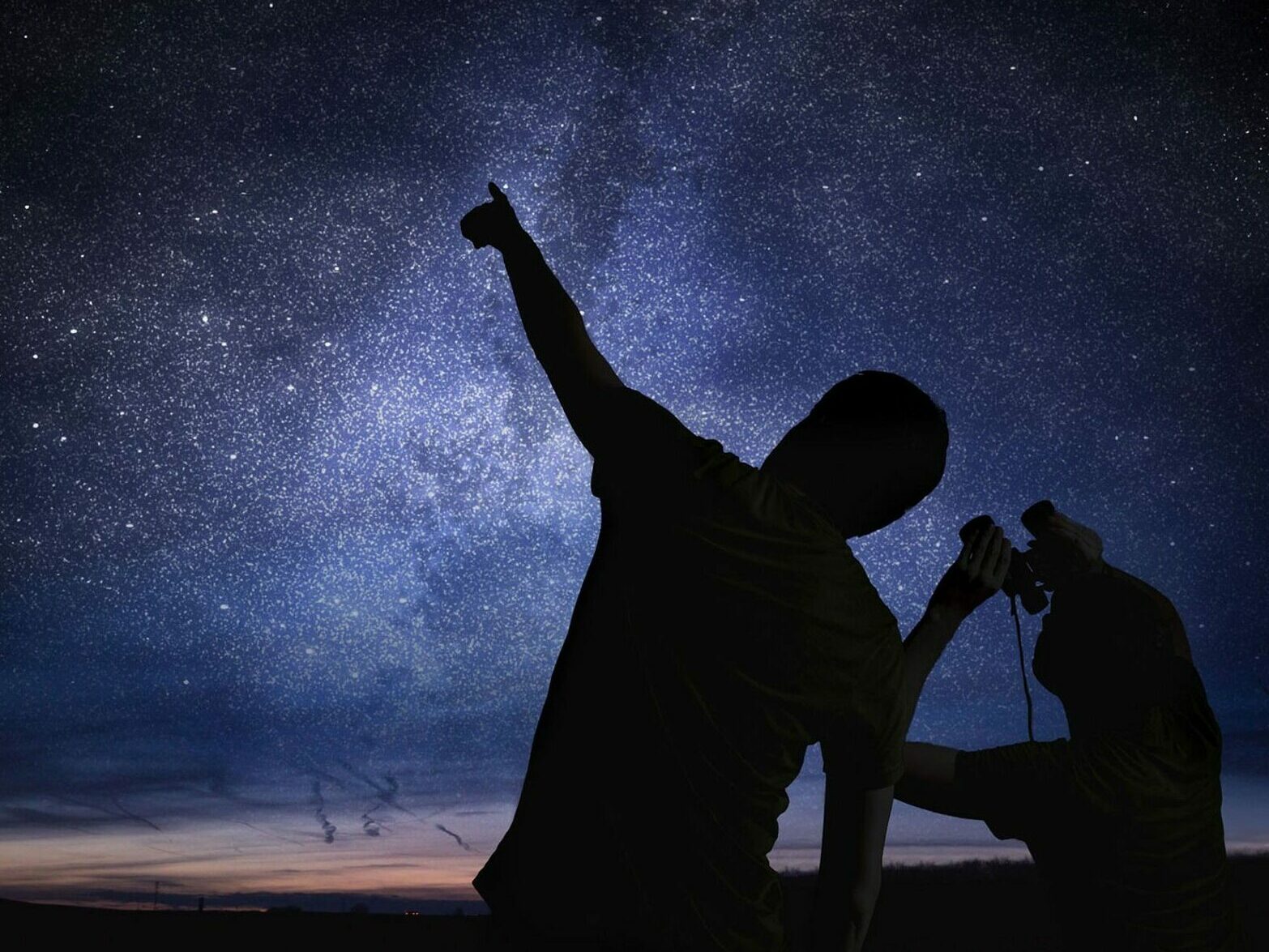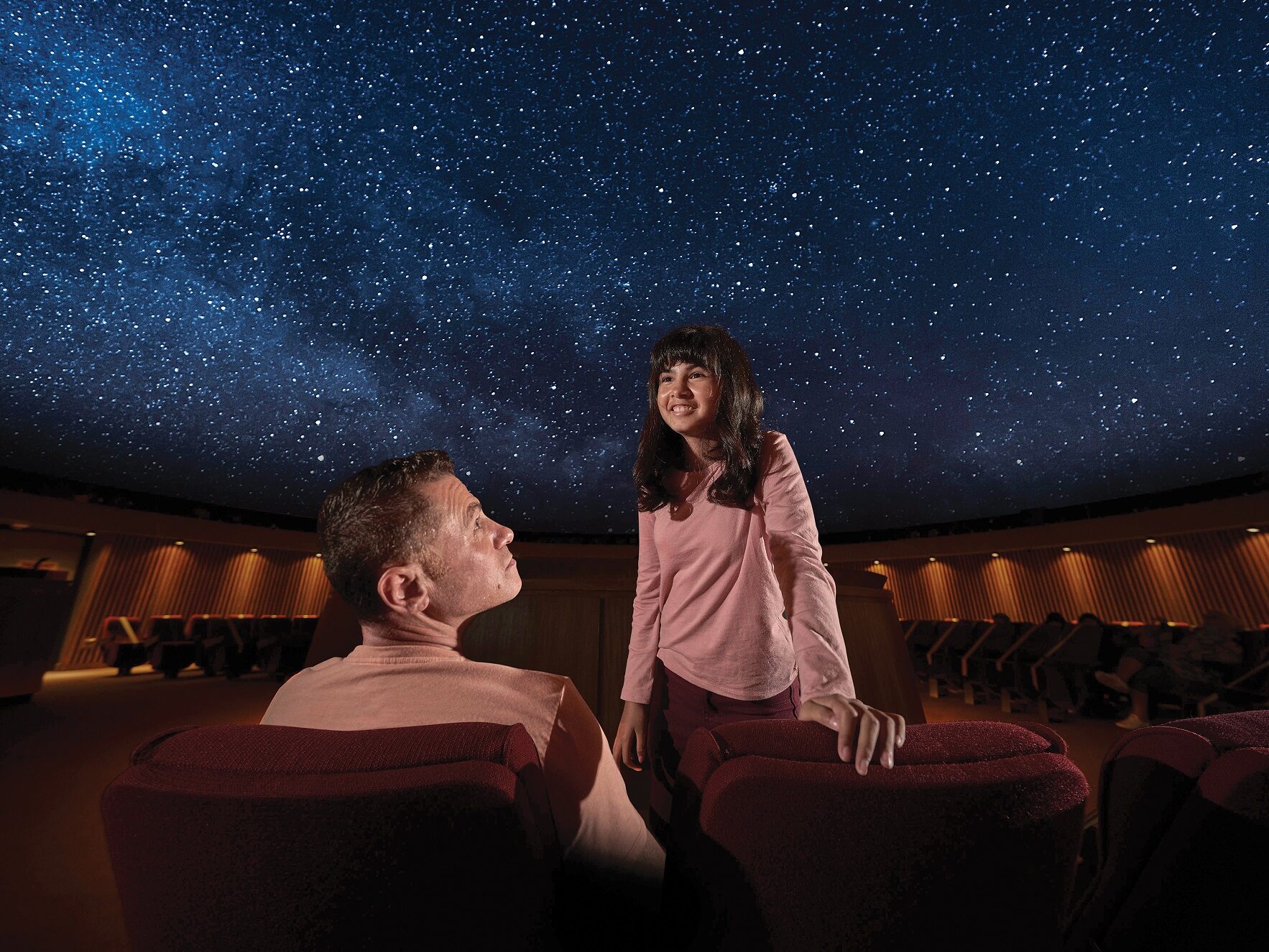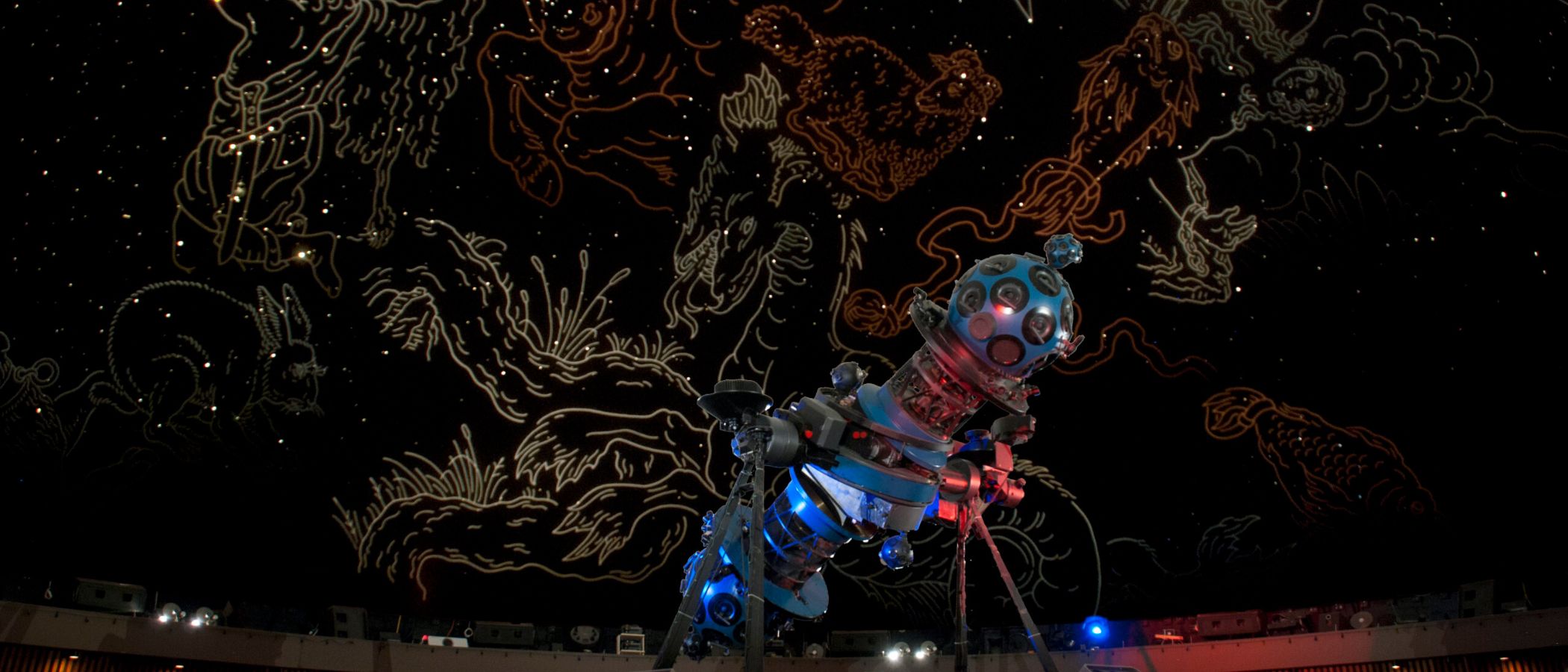By Scott Young, Planetarium Astronomer
Have you ever seen the stars? Like, really SEEN them, from a dark place, far away from the lights of the city. If you have, you’ll know what I’m talking about. If you haven’t, you are missing one of the great beauties of the natural world.
The night sky is magical. Take even the most jaded person and put them under the stars, and it gives them a sense of awe and wonder. We can’t help it – we are hard-wired to be amazed by the stars.
I’m sure there is some explanation for why that is. Probably, because our ancient ancestors who *didn’t* like the stars also didn’t figure out the cycles of the heavens and the progression of the seasons, and so didn’t make it through a winter that they couldn’t predict. The sky has given us clock, calendar, and a certainty about our understanding of the universe around us, and civilization was built upon that knowledge. The sky was one of humanity’s greatest discoveries, right up there with fire, the wheel, and chocolate.
Today, with satellite weather and pocket-sized supercomputers, we don’t need the sky for such basic purposes. (It still works, by the way, in case the zombie apocalypse or robot uprising sets us back to the dark ages.) We have telescopes in space and are flying drones on other planets. Yet more than ever, people are looking to the sky with interest. Even with all the things we know about the universe, there’s still a sense of mystery and wonder that makes us want to experience it ourselves.
And you can. You don’t need a telescope to start exploring the sky tonight. All you need is a clear sky, and a place even a little sheltered from nearby lights. Even from downtown Winnipeg you can see the Moon, the brighter planets, and many of the familiar star patterns like the Big Dipper or Summer Triangle. An ordinary pair of binoculars can give you a closer view and expand the number of objects you can track down. Books, apps, and online videos can teach you the sky one piece at a time, and each discovery you make will be yours. It doesn’t matter that Galileo discovered the moons of Jupiter four centuries ago – when you discover them for the first time in a pair of binoculars, you will feel the same thrill of excitement he did, and your personal universe will have gotten a little bit larger.

Exploring the sky has another important benefit: it’s fun and relaxing, and it gives you a broader sense of perspective. When contemplating the three hundred billion suns that make up our own Milky Way or if any of their trillions of worlds are inhabited, our smaller earthly concerns fade into the background. The pale blue dot we live on is just a speck in the vast universe, and the things that divide us are outnumbered by the things that unite us. We all live under the same sky, and the stars belong to everyone. Get to know our sky, and you get to know yourself and your place in the grand scheme of things.
Explore Manitoba’s Skies!
Visit the Planetarium this summer to venture to far-off galaxies, witness spectacular solar systems, and get to know the stars in our very own skies.
Buy your tickets today to reserve your seat under the stars!




